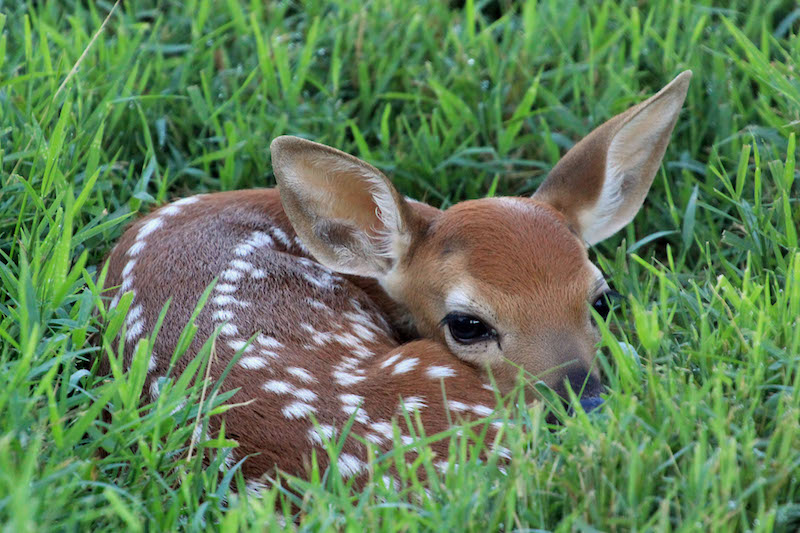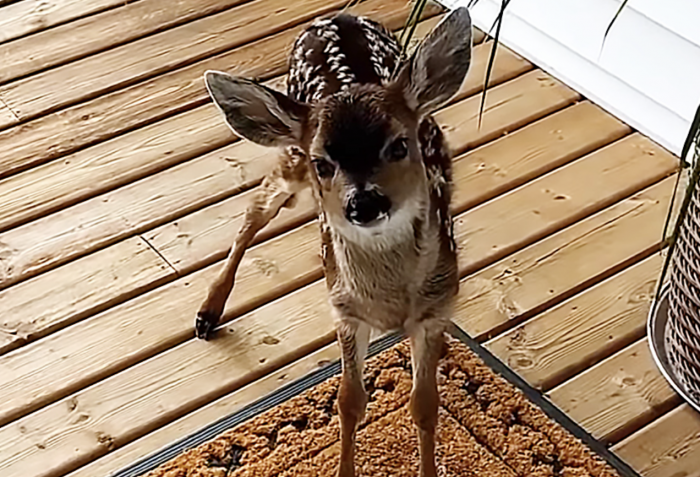Spring and summer is baby deer season! For many homeowners in rural communities, this means a possible encounter with a baby dear on your property. This may seem alarming at first, but actually, it is a pretty common occurrence. What to do if you find a baby deer? Read on.
White-tailed deer fawns are born in Virginia from April through July, with most fawns born in June. The majority of first-year does only have one fawn each year, but twins or triplets are common after that.
Deer fawns are left alone as their moms go to eat until they are strong enough to keep up with them. To avoid leading predators to their young, mother deer will keep away from the fawns. Does return to feed and/or move their young at dawn and dusk.
Found a Baby Deer on your Property? DON’T DO THIS
Never give deer food. Due to the prolonged crowding of deer near an artificial food supply, deer feeding aids the spread of disease. In Virginia, deer infections such as Chronic Wasting Disease (CWD), TB, and brucellosis are all serious and deadly. Feeding deer is prohibited from September 1 to the first Saturday in January, as well as in the high-risk CWD areas of Clarke, Frederick, Shenandoah, and Warren counties.
The best way to deal with a fawn on your property is to leave it alone but observe for any signs of distress. If she is resting and appears healthy, she is there for her own safety. The doe (mama deer) has led her there while she eats. If the adult deer does not return within a couple of days, call your local wildlife dept.
If you observe a fawn walking up to people and crying, clearly in distress, the baby may be hungry and dehydrated. At this point, you can assume something must have happened to her mother, leaving the spotted fawn an orphan.

A fawn should never be kept. If you feel a fawn is really in need of help, contact a local wildlife rehabilitation center right away. Fawns raised in a domestic environment become gentle, but when they reach sexual maturity, they can be rather deadly. Licensed fawn rehabilitators will safely nurture orphaned and injured fawns for release
A mature deer (Doe) should never be approached. Even though injured adult deer appear feeble, they may simply be stunned and can rapidly awaken and attack with their hooves and antlers. When dealing with an injured adult deer, always contact the sheriff’s department or animal control. Check with your local government website for laws and regulations. (Adult deer may not be rehabilitated in Virginia, according to the VDGIF’s wildlife rehabilitation permit restrictions.)

